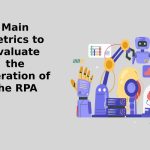It is essential to develop a mobile app in today’s marketplace, but it can be expensive, yet it’s important to remember that the cost of not having a mobile app can be even greater. Here are some tips for budget planning when developing a mobile app.
1. How to budget for your mobile app development project
It’s important to develop a realistic budget for your project. Start by figuring out how much you can comfortably afford to spend on development, then add in any other expenses that might come up during the project such as user testing, marketing, and advertising costs. Once you have an overall budget number to work with, it’s time to break it down into more specific components.
Estimating the cost of developing a web app can be a daunting task. You’ll want to ensure sufficient resources are put into the project so that the end-product is successful, but also make sure you don’t spend more money than you need to. A good starting point is calculating how much revenue it could potentially generate for your business and using that to gauge what you can afford.
The best way to do this is by researching similar apps online, assessing how popular they are, and how much revenue they produce from advertisements or other means of monetization. Additionally, before setting yourself a budget it’s important to evaluate whether it’s likely that your app will pay off in the long run.
This may involve considering its future marketability, scalability, and potential for achievement in order to recognize whether those large financial investments will eventually pay off for your business.
2. What factors to consider when planning your budget
When planning your mobile app development budget, consider the following factors:
Design & Development Costs: How much should you spend on design and development? Generally speaking, the cost of designing and the cost to develop a mobile app is proportional to its complexity.
If you plan on incorporating advanced features or specific platforms into your app, expect these costs to increase accordingly.
Third-Party Service Costs: Depending on the type of app you’re developing, you may need to factor in expenses related to third-party services. These can include hosting fees, API access fees, and any other service costs associated with your project.
Maintenance & Updates: Developing a mobile app doesn’t end when it’s released. You’ll need to budget for ongoing maintenance costs such as bug fixes, security updates, and feature enhancements.
Testing & Quality Assurance: User testing is an essential part of the development process and should be built into your budget from the start. This includes user focus groups, usability tests, and beta testing.
3. How to manage your expenses during the project
Once you’ve established a realistic budget, it’s important to develop a plan for how you’ll manage your expenses throughout the project. This should include setting up tracking systems to monitor progress, budget, and timeline. It’s also important to develop processes for managing change requests and staying within budget.
When working on any web app development project, carefully managing your expenses can be the difference between success and failure. However, successful budgeting is a skill that will serve you in any area of life.
Start by creating an estimate of how much the project as a whole will cost. Then, break this total down into more specific tasks to gain a better understanding of where funds need to be allocate.
Once you determine which pieces require an investment, compare prices from different vendors or services available to find the most suitable option for your desired outcome at the lowest cost.
Furthermore, conducting thorough research upfront on required materials and services can help immensely with planning for future expenses and keeping costs manageable through all stages of the project. Overall, there are a variety of strategies available for effectively budgeting for and managing your web app development project expenses.
4. Tips for staying within budget
Finally, here are some tips for staying on top of your mobile app development budget:
- Set realistic expectations for features and timeline
- Estimate costs ahead of time
- Keep track of all expenses from start to finish
- Monitor progress regularly throughout the project
- Incorporate user feedback into design decisions
- Develop contingency plans in case there are unexpected delays or costs
When budgeting for mobile app development, it is important to build in contingency plans as there are many potential risks associated with launching a new product. Contingency planning involves anticipating obstacles as well as building in safety nets and risk reduction measures that will protect your business from financial losses.
By understanding the inherent risks involved and allocating resources to plan for them effectively, you can ensure the success of your project by minimizing the potential damage that could arise from any unexpected issues during the development process.
A good contingency plan should take into account factors such as cost overruns, technology problems, and schedule slips, which could all lead to costly delays or even derailment of the project without proper planning.
5. Sample budgets for different types of apps
Depending on the type of mobile app you’re developing, your budget may vary significantly. Here are some sample budgets for different types of mobile apps
Simple Apps: These types of apps generally require basic design and development costs. The budget typically ranges from $10,000 to $50,000
Medium Complexity Apps: These types of apps often require more advanced features or designs. The budget may range from $60,000 to $150,000
Complex Apps: These types of apps typically require a larger budget due to their complexity. The budget often ranges from $150,000 to $300,000+
Remember that these are just sample budgets and should not be taken as hard-set rules for your project. Depending on the features, design, and timeline of your app, these numbers may vary significantly.
It is essential to develop a budget plan before you start the app development process. This way, you can ensure that your project is on track and within budget throughout the project. With careful planning and budgeting, you’ll be well on your way to developing a successful mobile app.
Final Words
Developing a successful mobile app requires careful planning and budgeting. By following these tips, you can ensure that your app is develop on time and within budget. With a little bit of planning, you’ll be sure to develop a successful mobile app.




